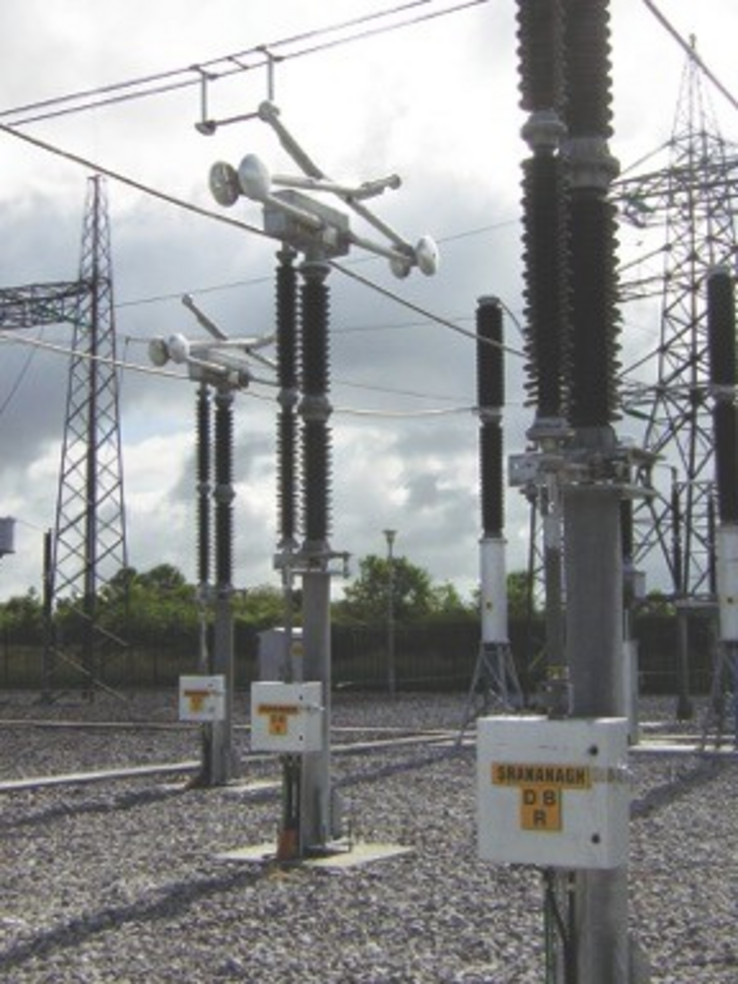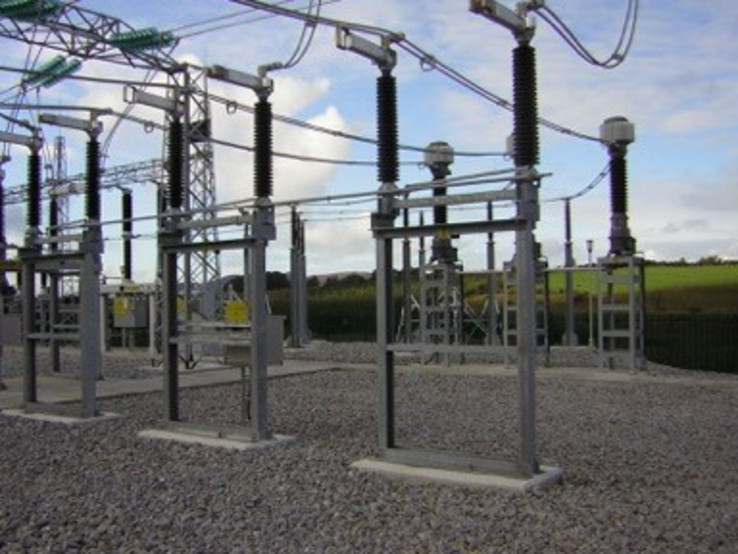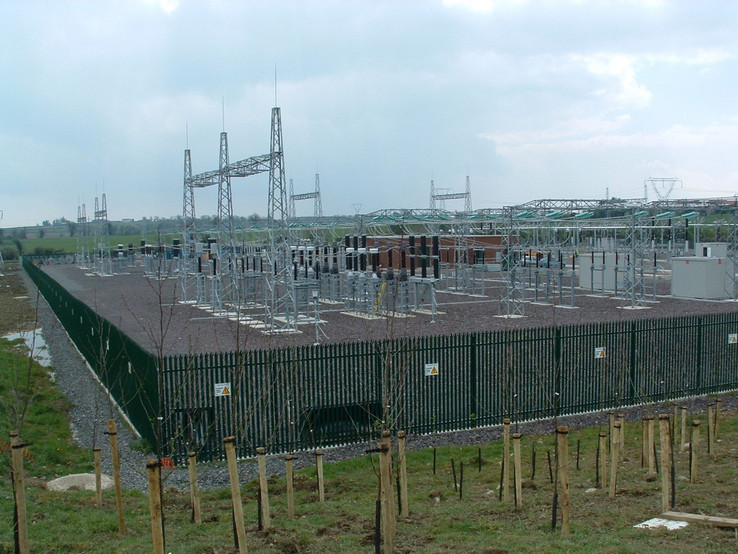Standardisation and simplification equal efficient engineering for ESB International
If we were to distil the goals of industrial designers, irrespective of their sector, they would probably fall into these categories: sustainability, standardisation and scalability.
If we were to distil the goals of industrial designers, irrespective of their sector, they would probably fall into these categories: sustainability, standardisation and scalability. CAE software provider EPLAN has taken these three S-es to heart from the very beginning and, as a result, its products have been providing the company’s customers with invaluable engineering support for more than 30 years. One long-term user is ESB International and they have been using EPLAN software solutions since 2001. ESB International, which is wholly owned by the Electricity Supply Board (ESB), was established in 1975. It is a leading engineering consultancy firm to the global utility sector that invests in, builds, owns and operates power assets internationally and in Ireland. Headquartered in Dublin, Ireland, ESB International employs over 750 staff across operations in Europe, the Middle East, Africa and South East Asia. ESB International has worked in 120 countries around the world, offering not just technical expertise, but also the leadership and personal commitment to succeed in some of the most demanding economies and geographical regions around the globe. In addition to investments in over 2,300MW of installed capacity and a similar amount in development, ESB International also has 146MW of renewable wind energy plant installed, 164MW under construction and a further pipeline of 740MW planned for Ireland and the United Kingdom. ESB International’s first-class engineering services and energy solutions are driven by their dedication to three key aspects of their service delivery – progressiveness, commitment and adaptability. Their progressiveness is expressed through their operational excellence, expertise in state-of-the-art, leading technologies and best practice approach to project management. In 1999, ESB International began planning for an upgrade programme which has to date covered 150 substations across Ireland using a generic CAD package for their circuit design; however due to the huge amount of additional reports and documentation that they would have to generate, they realised that this CAD system would not be suitable for their future needs and therefore started the process of looking for a CAE package which could meet all of their requirements. The company invited tenders from several suppliers and their evaluation showed that EPLAN met their requirements, particularly in terms of functionality, cost and global support. EPLAN was also able to demonstrate that it had relevant experience in the energy sector with a proven track record of happy long-term customers. In 2006, EPLAN combined the merits of EPLAN 5 and EPLAN 21 into a new standard of software – EPLAN Electric P8. Since its introduction, EPLAN Electric P8 has become the market standard and is frequently cited as a delivery specification. By migrating to EPLAN Electric P8 in 2014, ESB International has benefited from higher quality professional electrical documentation, which, thanks to its automated functions, will further reduce time-consuming work. At present, ESB International has 37 software licences, which are shared by 70 engineers. This sharing is possible because, at any given time, some of the engineers will be on site or involved in other project elements like administration or support, which means there is never a time when more than half of them need to be using the EPLAN software simultaneously. This workflow structure has created significant savings for ESB International. ESB International has consistently found that EPLAN products and services meet all of its requirements, aiding cost-effective, efficient and error-free engineering, which is crucial in the competitive energy marketplace. Their main application for EPLAN software is the secondary system design of transmission and distribution substations, operating anywhere between 10 kV and 400 kV. One of the main benefits of using EPLAN is that it allows ESB International to develop standardised design templates for various aspects of the substations,” explains Tony Ward, Strategic Account Manager at EPLAN. “Not only does this save engineering time, as it isn’t necessary to “reinvent the wheel” for each new substation, it also means that all of the substations incorporate the same design elements". This commonality makes life easier for the panel builders who produce the panels used in the substations leading to a reduction in their price. It also makes it easier to commission and maintain the substations, because the engineers working on them are familiar with the design. The standardisation made possible by EPLAN also makes it easier to maintain quality as, once identified, problems can be eliminated from the templates, which means that they will never recur. “As a company who operates across the world with 750 staff, standardisation and simplification are necessary so we can produce engineering to the quality standard ESB International demands everywhere we operate, so EPLAN is the ideal partner for us,” says Jan Bednařík, specialist for the control and protection systems in the Substation Design section at ESB International. In our team, we use EPLAN to make standard templates for other designers to use. We find this to be an excellent way of working and it has served us well over the years. Another important benefit we get from the EPLAN software is that it generates documentation at the push of a button, eliminating the risk of costly errors". In order to further tailor the software to ESB International’s needs, EPLAN created an interface that integrates with ESB International’s Meridian Document Management System. This special interface allows documentation generated by the EPLAN software to be transferred directly into the document management system, which enables better and faster communication between departments, as well enhanced traceability and simpler archiving. ESB International also has a support contract with EPLAN which entitles their engineers to have 24/7 access to the EPLAN technical helpdesk, automatic update(s) to the latest versions of EPLAN, and access to the EPLAN Data Portal. “It’s good to know the support is there when it’s needed and that we do not have to budget separately to pay for upgrades”, says ESB International’s Jan Bednařík. The EPLAN Data Portal is a web-based service, built into the EPLAN platform which provides online access to more than 600,000 devices for more than 140 major suppliers of electrical, mechanical, fluidic and pneumatic components. This data can be dragged and dropped into EPLAN documentation and by adding the components to the project, this reduces configuration work and increases the quality of the machine and system documentation. "The EPLAN team members are true professionals, always approachable and very knowledgeable - they're always ready to go above and beyond the contract requirements" says Jan. "Their support gives us the highest level of confidence and we have, without a doubt, benefitted greatly from our long collaboration. We are probably the most experienced EPLAN user in the power sector, and it shows in our bottom line!"





